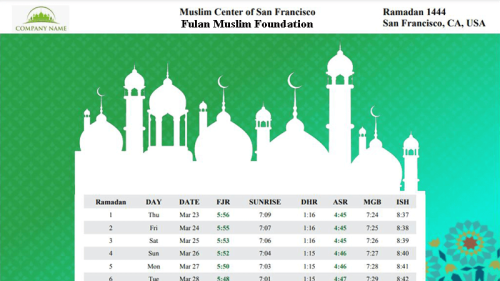Meaning and Essence of Prayer

Human beings have been praying for as long as humanity has existed. Rich or poor, literate or illiterate, the urge to pray is equally present in all. A well-known author has best described this as follows:
“In wandering over the earth, you can find cities without walls, without science, without rulers, without palaces, without treasures, without money, without gymnasium or theatre, but a city without temples to gods, without prayer, oaths and prophecy, such a city no mortal has ever seen and will never see.” 1Humanity and Deity, p. 15, by W.M. Urban
Since the urge to pray is universal in character and crosses racial, cultural and religious boundaries, we might wish to investigate it further by asking some important questions:
- - What is the essence of prayer?
- - What is the meaning of prayer?
- - What is the purpose of prayer?
- - Does prayer have any effect on individuals who pray? If so, in what way? And
- - Does prayer have any effect on society? If so, in what way?
Answers to the above questions are more important than the form of prayer itself. When we pray, what really happens to us? The prayer normally consists of reciting some words and possibly some body movements. This is true in all religions—only the forms may be different. Do the words have any effect on the individuals who pray? From the study of Psychology, we know that words have powerful effect on individuals as well as people. But for that to happen, it is necessary that words are clearly understood and their meaning and context fully comprehended. This ensures that the mind actively participates in the prayer also along with the body. Without this, the prayer will become a somatic routine, regardless of how much piety is attached to it from outside.
Thus we see that prayer has a very deep connection with the mind. But this mind-body connection, although made sincerely, should not be superficial that only produces a placebo effect. This has to be real. And a real connection can be established only when the power and the meaning of prayer activate the mind’s cognitive faculty. But many religions leaders, on the other hand, have perpetuated a myth which keeps people satisfied by performing the act of prayer without trying to establish this mental cognitive connection. We are told that the very act of prayer gives us plenty of rewards.
As far as prayer is concerned, religious leaders are very particular to mention—and rightly so, that it occupies a central place in religion. But mostly though the emphasis is more on the act of prayer rather than its spirit and purpose. Performing the act of prayer seems to be an end in itself. But there is no emphasis on the fact that prayer is a means to achieve some concrete goals in life. This aspect of prayer is normally overlooked and consequently the prayer becomes a soulless ritual done primarily to please God and for individual personal salvation in the hereafter.
Why do we pray? A simple, conventional answer may be that we pray because our forefathers have been praying and told us to pray, just as we tell our children to pray. Or that we pray because God has asked us to pray. But for many people who are sincerely searching for a more meaningful answer, this may not be satisfactory. First of all, God has given us freedom of choice for everything, including prayer. So we do not have to pray if we do not want to. In fact, in good times, most of us don’t. Only when some personal tragedy strikes (or when we reach old age) that many of us start praying regularly.
For example, consider a plane full of people about to crash. In this helpless situation, everyone will be praying for life and survival. If the situation seems completely hopeless, and they realize that they are going to lose their lives, people will be praying for God’s mercy, forgiveness, His pleasure, and personal salvation in the hereafter. But nevertheless, everyone will be trying his/her best to survive until the very end.
This instinct of self-survival is inherent in every living being, including humans. Other beings have defense mechanisms given by God for their survival. But humans find themselves helpless and defenseless against many living beings and natural catastrophes. Naturally primitive man tried to pray to them, as he had not developed tools for self-defense. He prayed to various natural objects that threatened or benefited his survival. When human beings developed tools for self-defense and gradually advanced in science, they tended to drift away from religion. They found security in science (rather than prayer) because science gave them control over the forces of nature.
Thus we see that there seems to be no single reason as to why people pray. Everyone can come up with his or her own answer and feel satisfied. In fact, this is what we normally do.
The Arabic word صلاتہ (Salaat) is normally translated as Prayer in English. But the root meaning of صلاتہ (Salaat) is “to follow someone closely.” For example, in a horse race, if the second horse follows the first horse so closely that its head is always overlapping the first horse’s body, then it is called Al-Musalli, and the first horse is called Saabiqun. [Taj-al-‘Urus, vol. 10, page 213; Lisan-al-‘Arab, vol. 7, page 398.] Therefore, Salaat means to follow Allah closely. The Qur’an uses the term أَقِيمُواْ الصَّلاَةَ (Aqeemus Salaat) quite often which is usually translated as “Establish Prayer.” This translation does not fully convey the meaning of the original concept. The root of Aqeemu comes from ‘qaa-ma,’ which means to stand, to be balanced, to have a just, fair and long-term strategy for dealing with problems, and to be steadfast.
Therefore, Aqeemus Salaat means “to establish Salaat” as a permanent and balanced system in which human beings can follow the Divine Code in all aspects of their lives individually, as well as collectively. Only when a group of people have willingly accepted, understood, and been convinced of its truth with deep conviction (Iman) and want to lead their lives by this Divine Code, that this system of Salaat can be implemented. This is the process our Prophet (PBUH) followed and therefore, is his Sunnah. The Prophet (PBUH) and the Sahaba (R) did not pray for their personal salvation or just to please God. Their entire life was devoted to fulfilling the goal of establishing the system of Salaat in the society. ‘Aisha (R) is reported to have said that the Prophet (P) was a “walking Qur’an”. This means that he was leading his life by the Qur’an. He also made certain that his companions were living by it as well. The Quranic way of life can not be led individually or alone. It must be done collectively as an Ummah under a system driven by the Divine Laws. The only way to do this (according to the Qur’an and shown by the Prophet (PBUH)) is to replace the old system based on lifeless and soulless rituals with a new one based on the Quranic concept of Salaat.
Praying five times a day is only one part of Salaat. When we finish our prayers in the Masjid, we are not done with Salaat. It is not something to do and finish. It involves every aspect of life, keeping it within the guidelines of the Divine Code twenty-four hours a day. This system was originally established by our Prophet (PBUH) and the Sa’haba (R). Five times a day our prayers are meant to renew and reinforce our commitment to steadfastly enforce the system of Salaat ordered by Allah and practically shown to the humankind by the Prophet (PBUH). This renewal boosts our psychological energy to come together and support each other towards the goals of the Qur’an. This is how Allah’s laws can be engrained within us; this is how the Prophet (PBUH) and the Sa’haba (R) found it so natural to follow the Qur’an, and the results they produced within 30 years speak for themselves. Needless to say, our prayers are not producing the same results although we have been praying for more than a thousand years in ever increasing numbers.
Footnotes

















